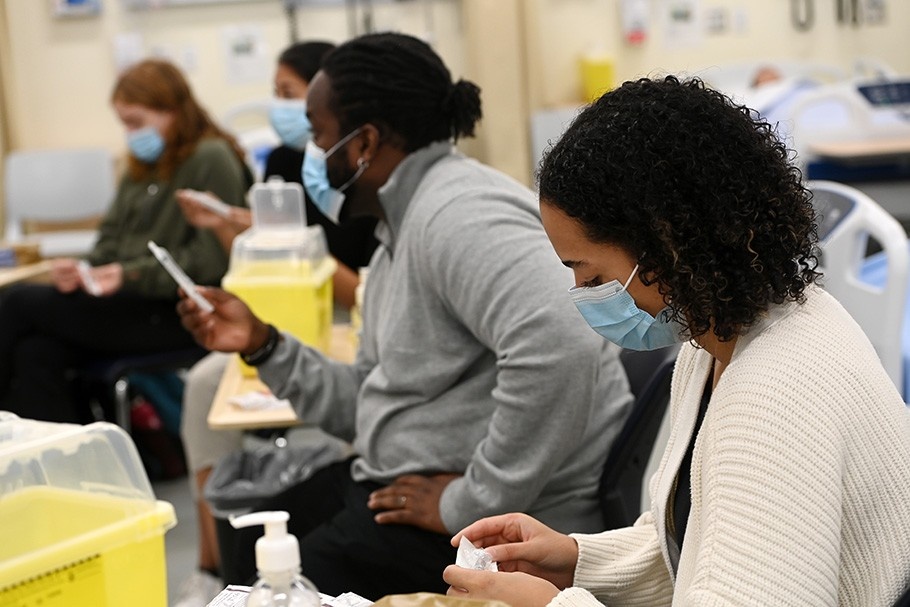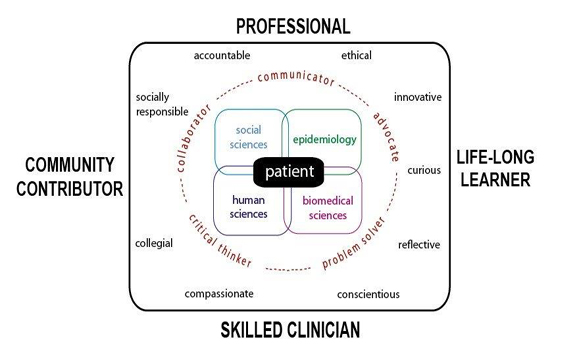MD Program

The most up-to-date curriculum in Canada
Our MD program gives you hands-on learning opportunities starting in your first week of medical school.
Med 1 & 2 (pre-clerkship years)
For the first two years of medical school (Med 1 and Med 2), you're based either out of Halifax or Saint John. Pre-clerkship years offer a basic foundation in anatomy and systems of the human body, as well as the philosophical and ethical aspects of medicine.
There're structured lectures, labs, tutorials, scheduled time for the Research in Medicine program, electives and self directed learning. You'll work closely with faculty, volunteer patients and simulated patients. And at the end of Med 1, you'll spend a week working alongside rural physicians in communities across the Maritimes. Over the summer months, you may apply for summer electives.
Med 3 & 4 (clerkship years)
Clerkship, completed over two academic years (Med 3 and Med 4), offers you more opportunity to apply your learning in a variety of clinical settings and across a variety of medical specialties. You'll have the opportunity to meet faculty in our teaching hospitals, gain mentors and explore residency training programs. Clerkships take place in teaching sites across the Maritimes, with opportunities to travel across Canada and internationally.
Research in Medicine (RIM)
The RIM Unit is a 3-year longitudinal program, beginning in September of first year with completion in September of fourth year. Research is built around an intensive summer studentship, typically in students’ first year and conducted under the supervision of a faculty mentor.
RIM instills a high level of critical thinking and creates a culture of inquiry among our learners. At the end of their undergraduate medical training, students should no longer see themselves as consumers of knowledge but as professionals with responsibility to generate knowledge to advance their profession.
Our educational outcomes
Dal Medical School graduates integrate their knowledge, skills and attitudes for competence in four principal and interdependent areas of achievement: as professionals, as community contributors, as life-long learners, and as skilled clinicians.


